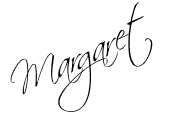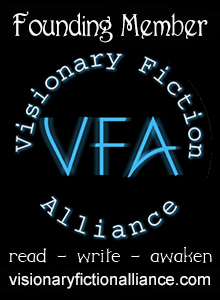
1. What subjects are you drawn to in your writing and why?
The subjects that fire my gut and fuel my writing are spiritual and emotional freedom, empowerment, and bridging differences in today’s world. My novels incorporate ancient wisdom teachings in ways that make them accessible and relevant to our times.
I encourage people to release their greater potential into the universe and open their eyes to sources of inspiration outside of the status quo. Through my novels, which synthesize heart and mind, science and spirituality, I hope to inspire people to activate their gifts, retire their excuses, and stand in their own authority.
2. Describe the genre of fiction you write?
Because of the spiritual/metaphysical aspect of my novels, I consider myself a visionary fiction writer. That said, my stories also have the broad commercial appeal of women’s fiction.
3. Who are your favorite authors and why?
There are so many. Jodi Picoult, Elizabeth Berg, Sue Monk Kidd, Joanne Harris, Carol Goodman, Diane Setterfield, Tana French, Carlos Ruiz Zafon, and Dean Koontz. They not only tell fantastic stories, but write descriptively, sensually, metaphorically, philosophically, and spiritually. Yes, even Dean Koontz. I consider Koontz a visionary author rather than a writer of horror. Another visionary author I admire is Paulo Coelho.
4. What are your favorite books and why?
Anything by the authors above for the reasons I stated. Keeping Faith, by Jodi Picoulti, The Year of Pleasures, by Elizabeth Berg, Secret Life of Bees, by Sue Monk Kidd, The Girl with No Shadow, by Joanne Harris, The Ghost Orchid, by Carol Goodman, The Thirteenth Tale, by Diane Setterfield, In The Woods, by Tana French, The Shadow in the Wind, by Carols Ruiz Zafon, and the Odd Thomas series, by Dean Koontz.
5. What hobbies or interests occupy your non-writing time?
What non-writing time?
6. Tell us a random or weird fact about yourself.
I actually loved teaching English and creative writing at the middle school level, which most people think is beyond weird.
7. Can you tell us about your journey as a writer? Is it something you’ve been doing all your life, or something you have left and returned to?
Writing brought me welcome recognition in high school. One of my English teachers published an extra credit story I’d written in our annual school literary publication and another teacher made copies of one of my essays for every student in the junior class as an example of excellent writing. Both incidents left a lasting impression on me, though I didn’t comprehend their full significance at the time.
My advanced composition teacher in college also inspired my writing with encouraging comments on my work. She said she hoped to see me published one day. However, after graduation, I did what so many women of my generation did—married and became a full time wife and mother. My BA in English and my secondary teaching credential became little more than souvenirs to be stored in a safe place and forgotten, unless needed in case of an emergency.
Over the next 30 years, I helped out with the family dairy business, did some teaching at the secondary school level, and dabbled in an assortment of hobbies, but did little writing other than in my journal. It wasn’t until after my children were grown and I’d exhausted all my hobbies that I finally returned to what my teachers had encouraged me to pursue so many years before—writing.
Don’t get me wrong, those years as wife and mother were far from wasted. They taught me a lot about love and selflessness and fueled me for the years of writing that lay ahead. Over the last nineteen years, I completed four novels, while reading every book on craft I could get my hands on. I also earned a creative writing certificate through UC Davis Extension, joined several writing organizations, attended writers’ conferences, and participated in two critique groups.
8. What is your writing process like? Do you write every day?
Every morning I write in my journal for at least an hour, drawing ideas from the newspaper and whatever publication I happen to be reading for inspiration. I take notes as ideas come to me—while blow-drying my hair, driving (at stoplights, of course), walking, sitting in waiting rooms, even during the night when I should be sleeping. Having finished and published the four novels in my “Enter the Between” series, I’m now concentrating on marketing. A whole new ball game and completely out of my comfort zone.
9. What do you think a more mature writer brings to her craft that adds to the quality of her work?
Life experience helps a writer evolve, deepen, and expand in a way that no amount of “book smarts” can. The wisdom of maturity trumps the freshness of youth for tackling the complex issues that appear along one’s path toward spiritual and emotional freedom. In my twenties and thirties, I would never have dealt with some of the issues I do now. They weren’t part of my consciousness. Back then I was concerned with the material—finding a job, making money, building a home. Now I’m concerned with the spiritual.
10. What has been your experience with the publishing world? Do you have any lessons learned, or advice to share?
I’ve observed enough over the years to give some advice:
- Don’t submit too soon. When I finished my first novel, I was so proud of my accomplishment that I immediately entered the prestigious William Faulkner Novel Competition. It was one of America’s leading literary writing contests and offered a hefty first prize of $7,500, plus assistance in finding a literary agent and publisher. Oh, the innocence of the budding writer! Between the entry fee and postage (no electronic transmissions back then), I was a bit poorer for the experience. But I learned an important lesson: There were plenty of writers out there who had not only written novels, but had put in many more hours than I had at perfecting and polishing their craft. I heard that it takes approximately 10,000 hours of deep practice to get really good at something, which translates into approximately ten years, which I have doubled by now.·
- Focus. Decide on your author brand and articulate it in a one-paragraph statement. Use this as the basis for your author platform, which you must start early, before you begin submitting your work.
- Build an online hub, preferably a blog linked with a website, and then use social networking sites like Twitter and Facebook to build relationships. Then point everything back to your hub.·
- Take classes, enter contests, join critique groups, and attend writer’s conferences to get feedback on your work and to learn all you can about the craft of writing.·
- Buckle down and never give up. You’re in this for the long haul.
11. What are you working on now?
I’m working on my author platform, which currently includes this website and the Visionary Fiction Alliance, of which I’m a founding member. I’m also–slowly, reluctantly, determinedly–beginning the next phase of my journey as a writer: marketing.
Thanks for stopping by,

